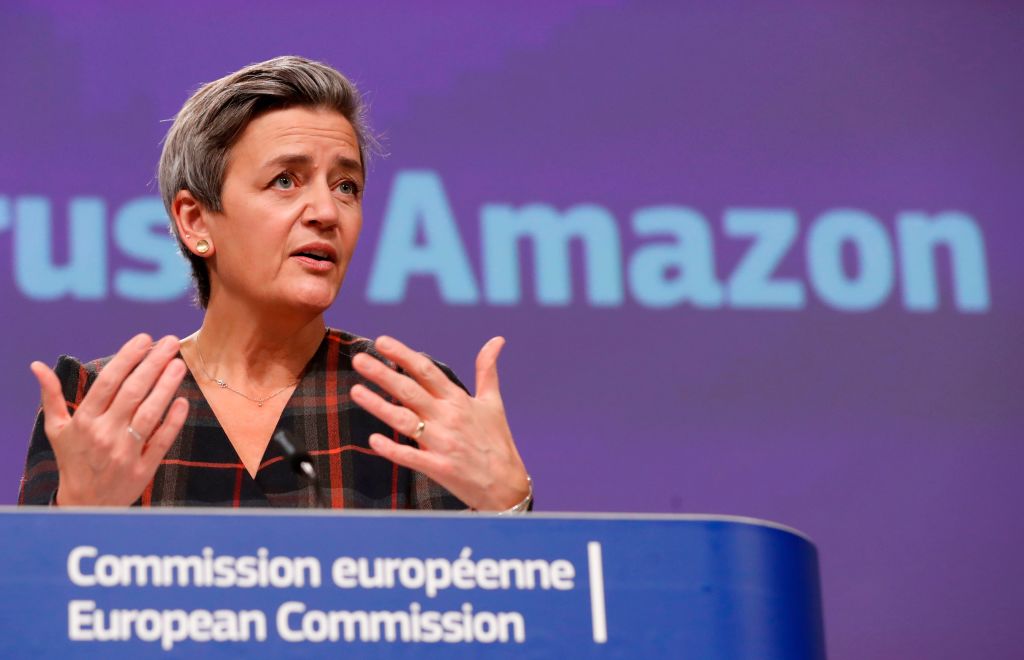They shift revenues around. They create endless shadowy shell companies. And they undermine the social model by dodging taxes. To the European Union, the American tech giants, when they aren’t busy destroying democracy and hollowing out local economies, are paying far too little to the state, and it is the only organisation with the muscle to start forcing them to contribute their fair share. There is one flaw in that analysis, however. Whenever the matter is put before Europe’s own courts, it keeps losing – and the Commission itself looks like an increasingly rogue organisation.
Yesterday, the European General Court decided that a £215 million fine handed to Amazon in 2017 by the Competition Commissioner Margrethe Vestager was in fact illegal. Amazon did not receive ‘illegal state aid’ as the Commission had insisted, instead the tax deal was perfectly in accordance with Luxembourg’s laws.
Of course, this is the EU, so there is no question that Vestager will resign after her string of defeats
This isn’t an isolated incident either. The EU keeps losing these tax cases. Last year the same court decided that Apple did not have to pay £11 billion in back taxes to Ireland. Again, the company’s affairs were perfectly in order. The EU lost another case against Starbucks on much the same grounds. It turns out that the American multinationals the EU goes after are playing by the rules after all.
Of course, this is the EU, so there is no question that Vestager will resign after her string of defeats, even though it would seem to call into question the competence of her decision making. That is not how the system works. After all, once Commissioners start resigning after their policies fail where would you stop?
And yet the Amazon ruling also highlights two big problems within the EU. The first is that, as so often, the EU is engaged in a power grab. It harbours ambitions for centralised control of tax, and corporate taxation in particular, but its members won’t agree to that. So instead, it uses state aid rules, arguing that tax breaks amount to a subsidy. Of course, that is nonsense. Sovereign states are perfectly entitled to set their own taxes, and a lower rate is simply fair competition, not state aid. The courts are always going to uphold that because, well, that’s what the law says.
The second is that the EU operates increasingly outside the rule of law itself. It likes to dress itself up as a rules-based organisation. But increasingly – and as we saw with its bizarre decision to seize control of vaccine production – it ignores the law whenever it suits. In fact, it increasingly rules instead by bureaucratic fiat. It can’t even win cases in its own courts, never mind any others. In truth, it is an increasingly rogue organisation – but at least it won’t now have an extra £200 million from Amazon to fund its ambitions.






Comments